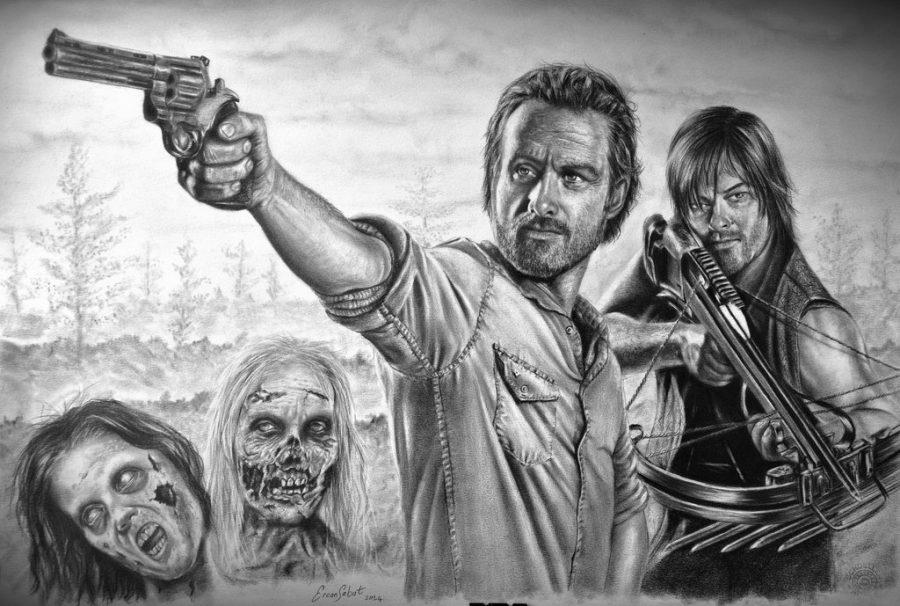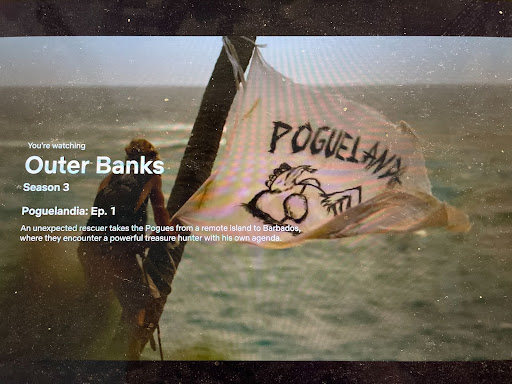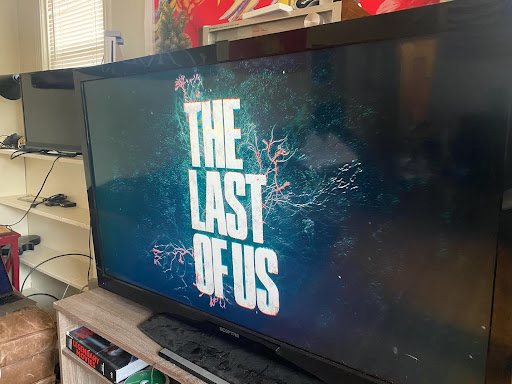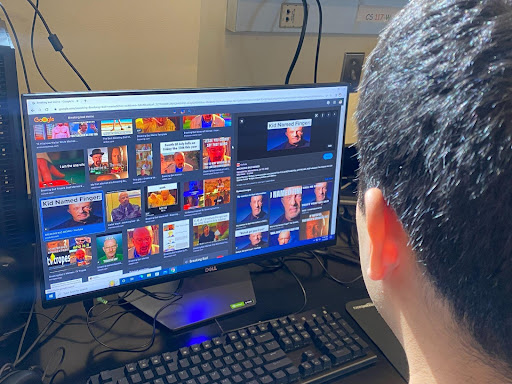Our imagination begs the question: What would you do? What would you do when civilization collapses? When life and death decisions must be made on a regular basis, where will you stand? Will your morals fade away or will you remain steadfast?
The Walking Dead inserts these thoughts into our minds through its immensely grey moral ambiguities. Moral decisions must be made in the wake of limited resources, conflict and violence in a world only the apocalypse could provide. This is how The Walking Dead begs the question, what would you do? Or more broadly—who am I?
The Walking Dead is not alone in the current category of cultural fascination with zombies and the apocalypse. Barnes & Noble has dubbed the decade from 2003 to 2013 a “Golden Age for zombie fiction.” 2006’s World War Z sold more than 1 million copies and turned into a blockbuster film starring Brad Pitt. The Centers for Disease Control and Prevention even jumped in the zombie obsession by posting a Zombie Preparedness page on its website.
However, The Walking Dead is the pioneer in the ongoing cultural obsession with both zombies and dystopias. It beat Sunday Night Football for viewers four times in a row last fall. People flock to the show every Sunday night for a reason. These are not Netflix bingers; these are loyal viewers who can’t wait week after week to find out what happens next to “the group.”
Why is this? The Walking Dead breaks almost every rule on basic cable television. Based off Robert Kirkman’s wildly popular comic book series, the show centers on Rick Grimes, a former sheriff’s deputy in Atlanta, Georgia. He wakes up after a coma alone in a hospital surrounded by death and gore. The audience learns with Rick what has happened to the world with the help of his first post-apocalyptic friend, Morgan; “walkers” wander the earth and eat humans. Their bite is infectious, kills the victim and turns them into another soldier of the dead—a simple and believable premise for a science fiction drama. The Walking Dead continues with Rick as he finds his family and struggles to survive and maintain his humanity throughout the series. The series routinely kills off main characters and will take a break from other major characters for episodes at a time to focus on only one or two. Children are killed, heads are sliced off and people are eaten alive. The show is different, new, and people love it.
The dystopian world of The Walking Dead reduces humanity to the basics: survival, shelter, food and community. Viewers are consistently drawn to the expression of these fundamental necessities. The show expresses what is most important to us, not more trivial things such as car payments, credit card APRs or mortgages. When a teenager is trapped, Rick must decide whether to leave him be or save him, adding another mouth to feed to his group. Carol must decide what to do with a murderous child who doesn’t understand the reality that zombies are dangerous.
However, the show is not about zombies and gore.The Walking Dead is about our humanity. Are we animals with the capacity for reason or can we be something more? Can we be civilized without civilization? The show deals with this theme every episode and is the direct appeal to its nearly 20 million viewers.
America’s anxiety and imagination for chaos and the apocalypse is not new. Ever since the Cold War, when nuclear holocaust was a potential reality, dystopian novels and films were rampant and popular. It was during this time the modern zombie was created by George Romero in 1968. When the Cold War ended so did the appetite for wondering about the end of the world, but not for long. The presence of international terrorism, earthquakes, tsunamis, school shootings and economics crises has sparked a new passion for the post-apocalyptic. Only a year after 9/11, Danny Boyle’s 28 Days Later hit theaters. Zombies are the way we express our anxiety about the world and death itself.
The Walking Dead capitalizes on this cultural infatuation but it is not the primary reason for its success. Television can be gory, sex-filled, and display violence, but not every show can genuinely express human sorrow, conflict, passion and depression. AMC has already proven to be excellent at producing shows that explore human nature to such a degree with Breaking Bad and Mad Men. The Walking Dead takes America’s craze for zombies and uses it as the context to illustrate humanity at its worst and best. Granted, many viewers tune in for the violence, while some enjoy the post-apocalyptic environment, but the reason The Walking Dead is breaking records year after year is because it successfully delves into the hearts and souls of its characters.
The Walking Dead begins the second half of its fifth season February 8 on AMC.
Image courtesy of: DeviantArt.com / Ercansebat












































































































